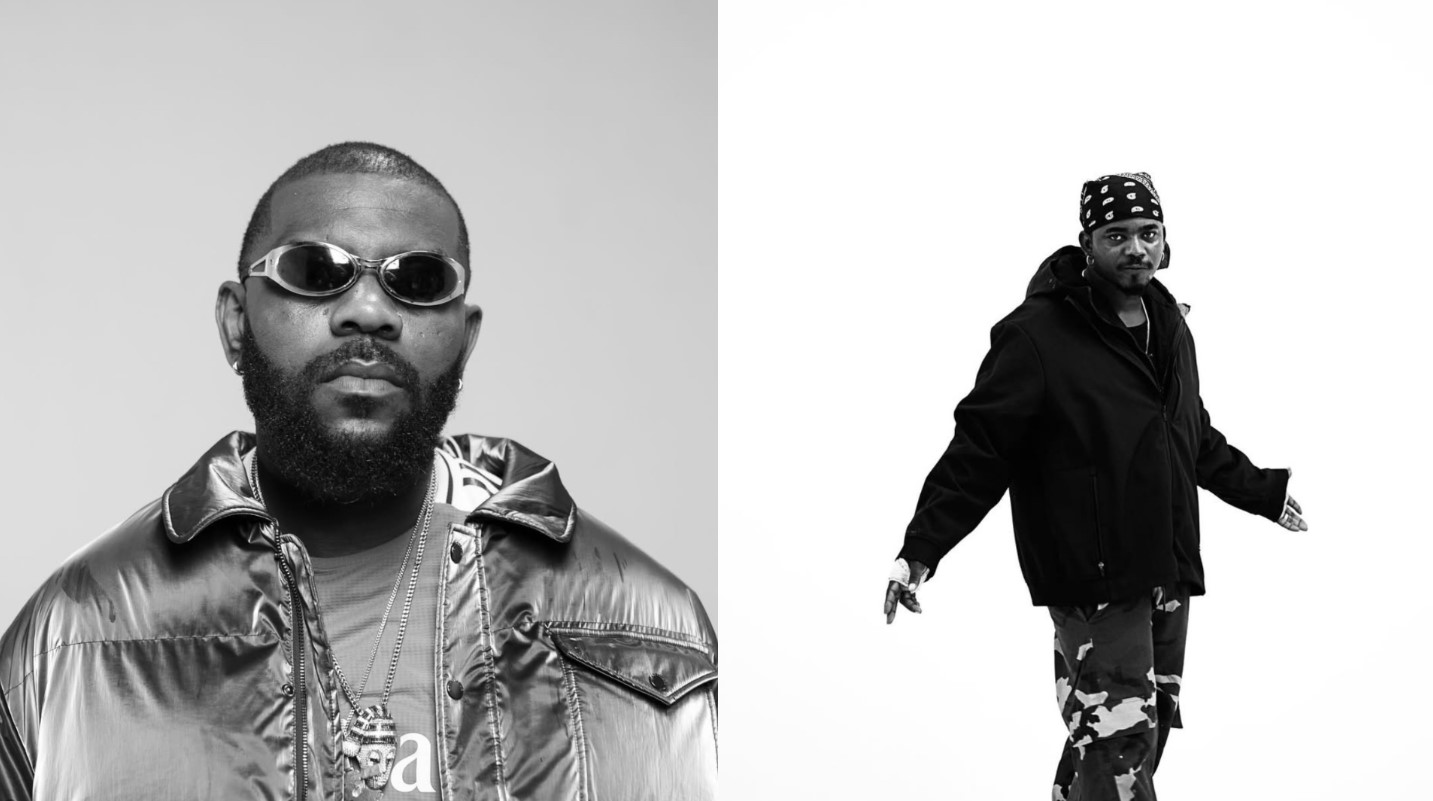Llona and Odumodublvck’s grassroots tours suggest that the next frontier for Nigerian pop isn’t just about going global, but more importantly about coming home.
By Abioye Damilare Samson
During my days as a university student, I was deeply involved in the entertainment scene on campus. As an active member of an entertainment outfit, I was neck-deep in the stress and thrill of event planning, curating shows, dealing with vendors, coordinating logistics, and, most frustrating of all, trying to get artistes to perform for students.
On very many occasions, our plans would fall apart at the artiste-booking stage. Either the performance fees were outrageously beyond our budget, or we simply got no response. The only times top artistes ever came around were through corporate-sponsored tours, in which the focus was more on brand promotion. The artiste would perform one or two hit songs, wave at the crowd, and leave the stage.
It was frustrating, but it is a stark reminder of how far most Nigerian Afro-Pop stars had drifted from the audiences that once built them. What’s even more striking is that, it’s not just students who’ve been left behind in this shift away from the intimate local connections that once formed the heart of Nigeria’s music scene.
Artistes rarely want to do home-base tours once they blow up. A recent example is the Benin rising star, Famous Pluto, who, after his TikTok-aided hit “Na Scra”, announced a Europe tour instead of doing the campus tour that would be essential to deepening his connection with the core local audience.
It has been like that for some time now. As the Nigerian music industry expanded its global reach and digital streaming reshaped how music is distributed, discovered and consumed, many artistes gradually drifted away from their grassroots audiences. With the rise of social media virality, curated playlist placements, and high-profile international collaborations, the incentive to connect physically with local listeners diminished. After all, it’s “Afrobeats to the world”, and not the other way around.
There was a time when campus tours were central to the life of a Nigerian artiste. In the 2000s and early 2010s, campus tours were a cultural staple. Brands and platforms like Glo Campus Storm, and Star Trek created direct lines between artistes and their most impressionable, loyal student fans. In 2013, 2face Idibia, at the height of his career, headlined the “Campus Connect: 2face & Friends Tour”, bringing along Sound Sultan, Sasha P, Timi Dakolo, and others to perform in Nigerian universities.
It was a nationwide campus tour that reminded young Nigerian students that they mattered to their favourite artistes. Even Burna Boy, now one of Africa’s biggest music exports, once hinted at this connection.
In a 2012 tweet, he announced plans to kick off a mini campus tour starting with Bells University. While there’s little documentation confirming if the tour fully materialised, the mention alone captures a time when performing for student audiences was still seen as a meaningful part of an artiste’s journey.
The campus tour culture waned as streaming and social media changed how stars are made, and how audiences are reached. But recently, some acts have been redrawing the map, rediscovering the power of face-to-face connection. In 2023, after the success of CKay’s global smash hit “Love Nwantiti”, a sleeper anthem revived by a viral TikTok dance trend in 2021, he kick-started a tour run themed “Boyfriend Tour” that included stops at some Nigerian campuses.

It was a statement move and a symbolic homecoming to reconnect him with the fans who first championed him long before he became a global sensation. That same year, Mavin Records, arguably Africa’s most successful label, organised the “Mavin Campus Tour”, with artistes like Crayon, Magixx, Ayra Starr, Boyspyce and Bayanni headlining shows across several universities. These efforts signaled a growing recognition that Nigerian fans, especially students, deserve direct, intentional experiences, rather than the online interactions on social media.
Now, in 2025, Odumodublvck and Llona are pushing this idea even further through more dedicated efforts that aren’t tied to brand activations, but built around immersive experiences that prioritise fan intimacy, physical presence, and energy exchange.
Odumodublvck’s “Greatest School Tour Ever” is perhaps the most deliberate, fan-first tour Nigerian Hip-Hop has seen in years. Riding the cultural momentum of his 2023 debut album, Eziokwu and the recent defining mixtape, The Machine Is Coming, Odumodublvck is choosing to take his riotous energy and anti-industry ethos straight to students. From OAU to OOU, ABUAD to Unilag and many other campuses he visited, he’s meeting his core fans in spaces where his art feels most resonant.

Llona, on the other hand, is redefining what it means to tour as a rising Afro-Pop act. Following the powerful success of his 2024 Homeless album, a body of work celebrated for its emotional depth and melodic brilliance, he embarked on the “Homeless Tour”, a journey through Nigerian cities and towns.
Unlike Odumodublvck’s school-focused route, Llona’s tour is more expansive, touching local communities, urban centers, and yes, schools too. With some of the clips from the tour surfacing online, his performances come across as intimate, emotionally charged, and full of life, revealing an artiste intent on building real connections with fans across the country.
What both artistes are doing is a reorientation of Nigerian music back to the soil. At a time when artistes would rather focus on TikTok virality than build physical communities, Odumodublvck and Llona are reminding us that true cultural impact starts at home. But beyond rekindling lost intimacy with fans, these grassroots tours have also exposed deeper gaps and possibilities within Nigeria’s music ecosystem.

One of the most glaring gaps exposed by Llona and Odumodublvck’s grassroots tours is the absence of institutional touring infrastructure in Nigeria. In countries with mature music industries, artistes benefit from established touring circuits, government-backed grants, booking agents, and national networks that make mobility between cities both easy and profitable.
A clear example is Live Nation in the United States, a global live entertainment company that manages large-scale tours, secures venues, and handles logistics for artistes, allowing them to focus on performance rather than planning.
Nigeria, however, lacks a working system comparable to this. Artistes have to independently plan and fund their tours, a process often plagued by logistical challenges, unreliable venues, and inconsistent support. Music industry veterans like Eddie Lawani have repeatedly pointed out this shortcoming. Speaking during a panel at Social Media Week Lagos in 2015, Lawani highlighted how the lack of a structured touring system in Nigeria hampers artiste development and deprives audiences across the country of consistent access to live music experiences. This infrastructural deficiency is further shared by artistes themselves.
In a 2023 interview with Cool FM Nigeria, hosted by Kayode Oladotun, popularly known as Do2dtun, Fireboy DML lamented the absence of proper venues and structures that facilitate domestic touring. He remarked, “Everyone is saying ‘Afrobeats to the world’. The music is perfect. But there is no structure. The [foreign] fans are listening [to our music] but when are they going to come to Lagos and watch us perform? When are we going to have arenas in Lagos where we can bring people from all around the world?”, he asked.
Tiwa Savage also spoke to this reality in a conversation with Toolz on Beat FM, recalling her own attempt at a Nigerian tour: “Touring Nigeria, which I did once seven years ago, is literally life-threatening”.
That such a prominent artiste would describe local touring in such stark terms only sharpens the argument: Nigeria lacks the institutional touring infrastructure like venues, security, reliable logistics, and accessible funding that artistes need to reach their home audiences. And if the industry truly wants to nurture sustainable, homegrown growth alongside global acclaim, then government bodies and cultural policymakers must take the lead in building the structures that make touring viable and safe within the country.
Beyond the glaring infrastructure issues, their tours also speak to a decentralization of Nigerian Pop culture, long dominated by Lagos. For decades, Lagos has been the gravitational centre of Nigerian pop culture. It’s where the major record labels are based, where industry gatekeepers operate, and where media coverage is most concentrated.
The city has served as an amplifier, dictating who gets attention, who gets signed, and who makes it into the broader public consciousness. To be taken seriously as an artiste, you often had to move to Lagos, or at least have Lagos-based allies. This created a kind of cultural monopoly that if it didn’t happen in Lagos then it barely registered.

But Odumodublvck and Llona are reshaping that geography. Odumodublvck, long based in Abuja, built a cult following far from Lagos’s orbit. Llona, similarly, was born in Kogi and raised in Kano. These are two locations often outside the spotlight of mainstream Pop conversations.
Yet these artistes are now at the forefront of a musical movement that is drawing energy from outside Lagos and redistributing cultural relevance across Nigeria. More than anything, it points to a decentralised future where access to music, celebrity, and cultural participation is no longer confined to a single city.
Similarly, this shift mirrors a broader countercultural wave currently reshaping Nigerian music. Just as Hip-Hop acts like PyschoYP (Abuja), BOC Madaki (Bauchi), and Jeriq (Anambra) are building independent scenes outside Lagos, and as artistes like Shallipopi and his Uzama brothers infuse Benin lingua and cultural elements into mainstream Pop, Odumodublvck and Llona are carving out a more geographically inclusive ecosystem that centres regional voices and expands the boundaries of where Nigerian Pop can thrive.
Even more profound is how these grassroots performances illuminate why Afrobeats (read Nigerian Pop) must now reclaim its local roots amid global recognition. For the past half-decade, Afrobeats has been on an unstoppable global ascent. Burna Boy is selling out stadiums in Europe. Tems is headlining festivals. Davido performed at the World Cup final. The “Afrobeats to the World” campaign has become both a cultural movement and a branding masterstroke. We’ve cracked the global framework, placing our sounds on Billboard charts, in Marvel movies, and across TikTok trends. But in this race for international acclaim, a crucial question remains: Are we still carrying our home audience along?
Llona and Odumodublvck’s grassroots tours suggest that the next frontier for Nigerian pop isn’t just about going global, but more importantly about coming home. That it’s not enough for Afrobeats to reach the world; the world must also be brought into the everyday realities, textures, accents, and emotions that gave birth to the sound in the first place. And that begins with re-engaging the communities at home.
If Afrobeats is to have a future that’s not just bright, but believable, it must speak with its people, and not merely on behalf of them. Because taking the world to Afrobeats starts with one powerful gesture: coming home.
Abioye Damilare Samson is a music journalist and culture writer focused on the African entertainment Industry. Reading new publications and listening to music are two of his favourite pastimes when he is not writing. Connect with him on Twitter and IG: @Dreyschronicle



